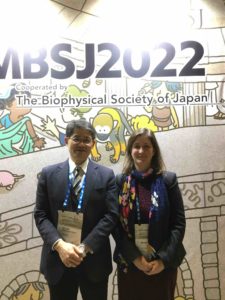A research grant of £324,643 has been awarded to Dr Alan Stewart and Prof Ramzi Ajjan (University of Leeds) from Diabetes UK to carry out a new 30-month study entitled “Magnesium deficiency as a reversible driver of vascular complications in type 1 diabetes”.
People with type 1 diabetes (T1D) are at a higher risk of developing vascular problems where blockages in the blood vessels, caused by unwanted clot formation, limit the flow of blood. This, in turn, can causes heart attacks and strokes which are serious conditions that can be fatal or impair quality of life.
We previously found that people with T1D can have lower blood magnesium levels compared to those without diabetes. Magnesium is an essential nutrient important for health and our work has also shown that the lower the level of blood magnesium, the more difficult it is for a blood clot to break down after it forms. This increases the risk of blood vessel occlusion and consequently adverse health conditions.
In this new study, we will take blood samples from people with T1D with low blood levels of magnesium to examine in detail clot formation and breakdown, which will help to understand the exact mechanism(s) involved. Importantly, we will assess whether providing magnesium supplements to people with T1D helps to normalise blood clotting profile to match, or at least come close, to people without diabetes. It is hoped that this work may provide a simple and affordable treatment to reduce the formation of dangerous blood clots in people with T1D.






